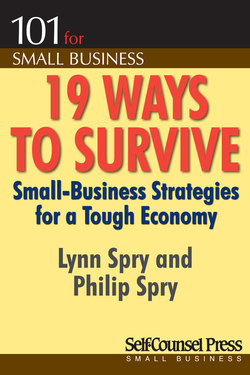Читать книгу 19 Ways to Survive in a Tough Economy - Lynn Spry - Страница 14
На сайте Литреса книга снята с продажи.
1. Protecting Your Personal Assets
ОглавлениеYears ago, when exploration was young and trade was booming, Europeans would send out ships to distant lands to open new routes and develop new business opportunities. However, when something went wrong, such as losing a ship and with it the cargo and lives of the sailors, the individuals that set up the voyage could become liable. This meant that their personal interests would be used to pay for the losses that were incurred. Unfortunately, this type of risk is too significant for anyone with any accumulated assets to take. If a ship was lost at sea, the individual’s home, business, and livelihood would all be risked. Therefore, to reduce this risk and encourage exploration, corporations were developed.
Corporations function the same way today as they did back when they were first created. Incorporating allows the business to become its own legal entity, which means individuals can invest in a new venture, but limit their risk to the money they have invested in that business.
If you are running your business as a sole proprietorship, even if you are the only employee, you are risking all of your personal assets if the business is held liable. To protect yourself, make sure that you are properly incorporated. Check with your accountant or lawyer to help determine the best business structure for your situation.
Lifesaver: There are a few different types of entities you can choose from when you incorporate. The type of entity you choose can impact your tax obligations. Make sure to talk with a qualified tax professional about the tax advantages of each type of incorporation before you choose one. The decision you make could save you a significant amount of money on your taxes.
After you have a properly incorporated business, make sure you run it as a business. This means that you must follow your state or province’s requirements regarding the organization and operation of a corporation. Although it may seem unnecessary, it is important that you hold the appropriate meetings and file the annual paperwork if required. Depending where your business is located and the type of incorporation you choose, these obligations can vary so make sure to work with an experienced professional to set up and manage your company.
Sometimes business owners are tempted to let their personal finances mix with their business finances. Once this happens, it can create all sorts of risks for the owners. The least of which is the tax risk associated with misallocated resources. If you are audited, your deductions can be rejected if they were not legitimately associated with your business. However, the bigger risk comes if your company is ever sued and found liable. If you do not keep your business and personal finances separate, it could be sufficient proof that you have not formally provided enough separation between yourself and the business. Once this is established, you can be held personally accountable for the liabilities of the business. Your personal assets, home, car, and investments will now be available to provide restitution for whatever financial award is decided.
To ensure you have properly separated your personal and business assets, there are a few simple things that you should do:
• Ensure your business is properly incorporated and maintains its incorporation status. Depending on the state or province in which you file, there are various rules that must be adhered to in order for a business to maintain its incorporation. If you aren’t sure how to do this, make sure you engage the services of a professional.
• Obtain and use a business Employee Identification Number (EIN) in the United States or a Business Number (BN) in Canada. These business numbers function similar to a social security number or social insurance number and are used for business bank accounts, tax identification, and lines of credit.
• Maintain separate finances. Each corporation that you own should have its own bank account. Further, financial transactions that occur in that account should be limited to those activities and purchases that are related to the business only.
• File business taxes. Your business should always file its own taxes using its own EIN or BN. Talk to a tax professional to make sure that this is done properly.
Of course, these guidelines are just recommendations. To ensure that you are in compliance with Federal, state, or provincial guidelines, regularly check with your lawyer or accountant. It will always be less expensive and easier to pay for advice up front rather than deal with the penalties later.
